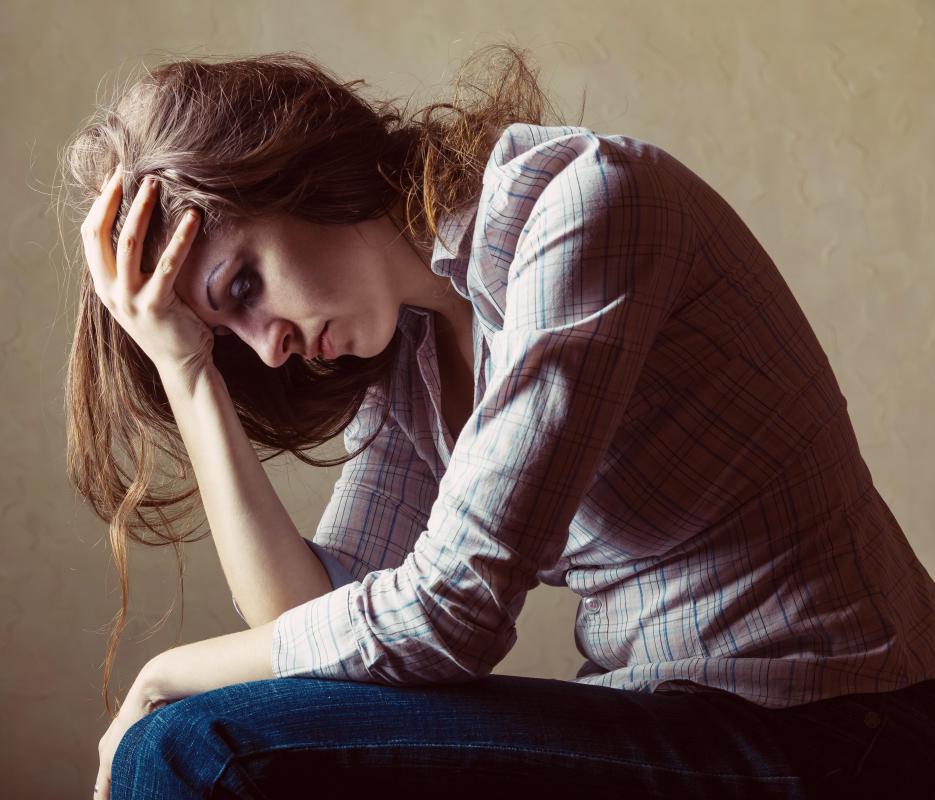At TheHealthBoard, we're committed to delivering accurate, trustworthy information. Our expert-authored content is rigorously fact-checked and sourced from credible authorities. Discover how we uphold the highest standards in providing you with reliable knowledge.
What is Carbon Monoxide?
Carbon monoxide is an odorless, colorless gas which is formed through the partial combustion of carbonaceous material. Although this gas is very structurally simple, it is also very deadly, and it poses a serious health risk since people can be severely injured through slow exposure over time as well as through brief exposure to high levels of this gas. Carbon monoxide is also very useful; it is an important gas in many industrial processes, and it is even deliberately generated by many chemical manufacturers.
The chemical formula of carbon monoxide is CO, meaning that it has one oxygen atom and one carbon atom. Any sort of combustion will produce this gas in varying levels, which normally dissipates into the atmosphere; inefficient combustion can generate dangerously high levels of this gas. In a confined space, it can become very dangerous. One of the most common sources of dangerous carbon monoxide is household appliances like heaters and stoves, along with internal combustion engines such as those found in cars. Proper ventilation of any sort of equipment which burns carbonaceous material is extremely important.

When animals and people are exposed to carbon monoxide, the gas binds to the red blood cells in the body, interfering with their ability to carry oxygen. The gas can stay in the body for an extended period of time, making it possible for people to slowly get sick from carbon monoxide poisoning. It can take several hours for the body to express the harmful carboxyhaemoglobin which is formed as a result of CO exposure.

Carbon monoxide poisoning is characterized by fatigue, difficulty concentrating, lethargy, and chest pain. Tissues in the extremities of the patient will also start to die as a result of the restricted flow of oxygen. If left untreated, a person can go into a coma, and ultimately die. The condition is diagnosed by testing CO levels in the blood, and it is treated with inhalation of oxygen, often in a hyperbaric chamber; the high pressure hastens the expression of carboxyhaemoglobin from the body.

In the home, it is a very good idea to purchase, use, and regularly test carbon monoxide detectors. In addition to warning you of a dangerous leak caused by faulty devices, these detectors can also indicate a smoldering fire. You should also regularly check your appliances for efficiency, and make sure that your home is well vented so that this harmful gas will not accumulate in your home. Several companies also make CO detectors for vehicles.
AS FEATURED ON:
AS FEATURED ON:

















Discussion Comments
@sunnySkys - It's always a good idea to have a carbon monoxide detector. I hope you did some research before you made your purchase though. From what I understand, not all carbon monoxide detectors are created equal. I personally have a Nighthawk carbon monoxide detector. It's never gone off, but I trust the quality of the product from the research I did before I purchased it.
Anyway, it's interesting to know exactly why carbon monoxide kills you. I had no idea that it would bind to red blood cells and interfere with them. I always though it just suffocated you by filling up your lungs or something.
@whiteplane - This article and your post especially inspired me to buy a Kidde carbon monoxide detector for my apartment. I have a gas stove, so I feel like I especially need a carbon monoxide detector.
I always knew carbon monoxide was dangerous, but I never really gave any thought to it in relation to myself and my apartment. I suppose I've always assumed the places I lived were well maintained. But I guess there's really no way for me to know how the gas lines are.
Anyway, the detector I ordered should be here in a few days, and I think I'll feel much safer after it does.
I had a friend that used carbon monoxide to commit suicide. We were all shocked that he had chosen to take his life and never realized how dangerous an idling car could be when it is in a closed space. I suppose you see that sort of thing in movies all the time but it really makes you aware of how easy it is to pass away.
After my friends death we all spent a lot of time talking about what happened and going through therapy. I suppose that in retrospect we have all learned to be a lot more careful when it comes to things like carbon monoxide. While his death was horrible I suppose it did teach us more than a few lessons.
@drtroubles - Carbon monoxide detection is important especially in new homes. You would be surprised at the problems you can find after you move even if you have had a home inspection. I would say put in a carbon monoxide detector in and see what it says.
As far as symptoms of carbon monoxide poisoning go generally your family would be experiencing lightheadedness, confusion and headaches. There is also a chance of vertigo, and flu-like effects. I would guess if your family is just feeling tired it is from the move, it can be very stressful even if you don't pick up a box. Get the detector just in case though.
Does anyone know what carbon monoxide symptoms appear when you are experiencing poisoning?
My family and I recently purchased a new home and it seems like we've been more tired since we moved in. I am not sure if this is just from the stress due to the move or if there is something worse happening. I know my kids don't have any real reason to be so sluggish as they didn't really have to help with anything during the move. They did put away their own things but I doubt that would make them so sleepy all the time.
It's really important whenever you move into a new place, particularly a rental property, to check if they have a carbon monoxide detector installed. Most places will only provide a smoke alarm but you are putting yourself and your friends and family at risk if you don't also monitor for carbon monoxide.
Another thing to consider is that in a rental property you don't know how well the gas lines. stove and furnace have been maintained. You might move into a place with old and broken down equipment that elevates your risk of carbon monoxide poisoning. Don't put yourself in that position. Go and get a ten dollar detector and know that you are protected.
@MrMoody - Even without an alarm I think practicing carbon monoxide safety procedures will go a long way towards ensuring that you never come down with poisoning.
If you have a gas stove or fireplace running, leave the windows open for proper ventilation. Have your gas appliances checked from time to time.
If you ever do feel symptoms like nausea and fatigue and notice that they only come when you’re in the house, that’s another clue that something is going on there. Have someone check your house for carbon monoxide as soon as possible.
@everetra - You’re right about carbon monoxide being so subtle. Some people actually exploit this property to kill themselves. I’ve heard of people carrying out carbon monoxide poisoning using the exhaust fumes from their car.
They attach a hose and run it into the car and shut the windows and seal everything up so there is no ventilation. That’s crazy in my opinion (of course all suicide is).
Imagine forcing yourself to die a slow death. But for these folks, all it does is create a painless way to die, since they get drowsy before going out. They're not suffering in any way. It’s still tragic in either case.
@allenJo - It’s not just automobile exhausts that can put you in that state. Household appliances can do that too.
I heard of a lady who had a gas fireplace. She left it on overnight and there were problems with the gas logs. Eventually she fell asleep without realizing what was going on.
She would have died, had it not been for the carbon monoxide alarm which went off. After she awoke she got the call from her alarm company and they told her that the carbon monoxide sensor detected the gas; she turned off the fireplace and waited outside until the firefighters came.
Sure enough they found high quantities of the gas in the house that were slowly building up and suffocating her. That’s why it’s so important to have these alarms installed in the house. It’s the silent, gradual nature of carbon monoxide poisoning that makes it so lethal.
You can easily get carbon monoxide poisoning if you sit in a parked car in your garage. It will take awhile admittedly but it can still happen. The carbon monoxide fumes will continue to build up with no outlet until finally you begin to suffocate.
What makes this kind of poisoning so deadly as the article points out is that it gradually builds up. You may not get knocked out suddenly.
Instead you slowly feel tired without really knowing why; you would probably chalk it up to regular fatigue. The next thing you know you’re knocked out and you could potentially die.
Post your comments